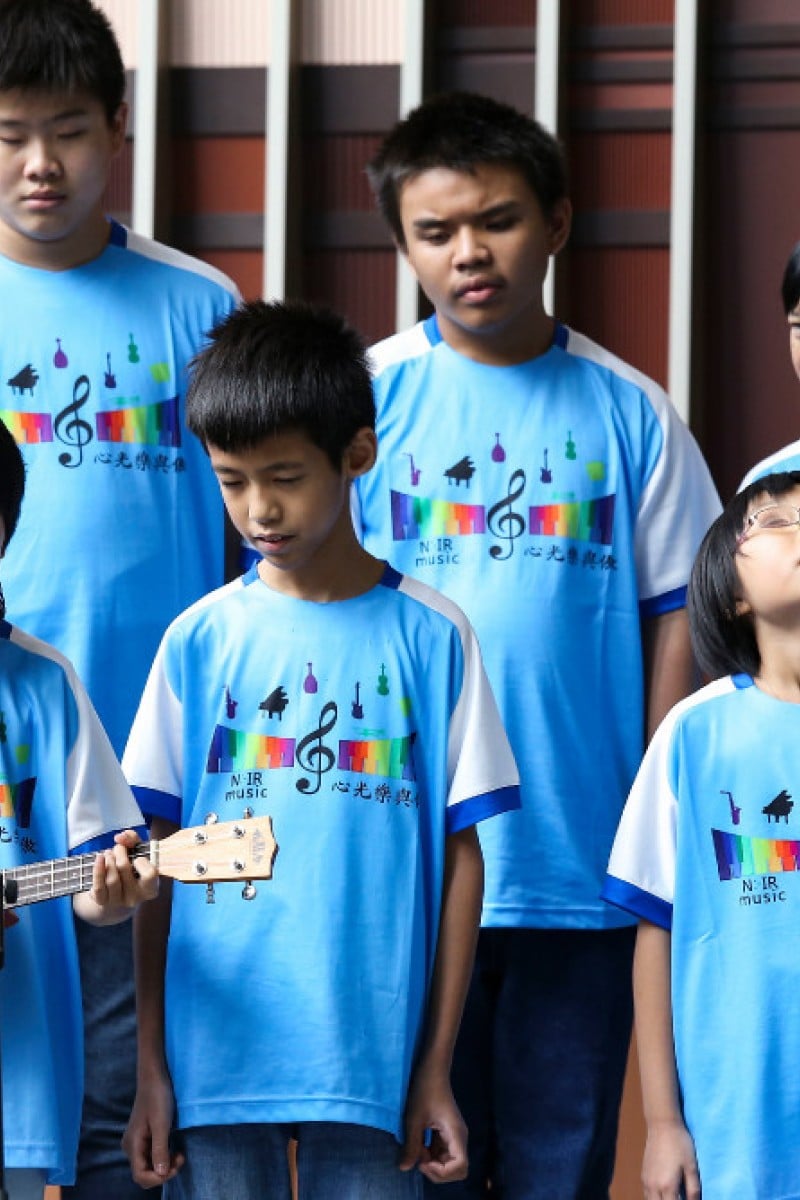
The school has been supporting Hong Kong’s blind students for 121 years, but changing society’s attitudes may take even longer
 Ebenezer School was founded in 1900 as a home for blind girls, and continues to offer its student an opportunity to show the world their talents today, like this group of Ebenezer School students who were performing at the Legislative Council in 2017.
Ebenezer School was founded in 1900 as a home for blind girls, and continues to offer its student an opportunity to show the world their talents today, like this group of Ebenezer School students who were performing at the Legislative Council in 2017.The modern world in which we live is a very visual one. We are bombarded by both real and digital advertisements, while movies, TV shows and mobile apps compete for our attention.
It can be difficult, then, for many of us to imagine not being able to look at the world around us. However, as the students of Ebenezer School have proved for more than 120 years, it is not only possible to survive, but to thrive without the ability to see.
Ebenezer School and Home for the Visually Impaired is one of the only schools in Hong Kong dedicated solely to students with visual impairments. It was founded by a group of German missionaries in 1900 as a home for blind girls, but later expanded to include male students, elderly people with visual impairments, and students with multiple disabilities.
Despite the school’s long history, however, its objective has remained much the same: to serve visually impaired children in Hong Kong.
“I think Ebenezer exists to provide not only opportunities, but support to Hong Kong’s visually impaired students,” says Dr Alice Yuk Tak-fun, the school’s CEO.
However, the key is not just to provide support, but to find the right balance between support and freedom. Tim Liu Chi-hong, a former student and current employee at Ebenezer, agrees.
“Independence is probably the greatest thing I received from the school; the school gave me many opportunities to grow, but you still have to do things outside, because that gives you the experience of what life is like in the real world,” Liu says.
Liu, who joined Ebenezer in kindergarten, says that what he finds most challenging as a visually impaired person is not so much being able to get around and do things, but communicating with other people.
“Learning how to present myself and how to communicate was very important. I didn’t have many friends in secondary school, but once I [grew older], it was easier to communicate with others and make friends,” he explains.
Ebenezer’s support for the visually impaired is not limited to education; it runs an outreach centre, which sends visually impaired social workers to help other less able visually impaired people such as the elderly. It also has a department called Project Works, which finds employment or internship opportunities for the blind in Hong Kong.
With an unemployment rate of more than 89 per cent among blind people aged 15 or older in Hong Kong, as opposed to the two per cent unemployment rate of visually normal people, Yuk believes society still has a long way to go in accepting and providing opportunities for the blind.
Willis Yim, another alumnus of Ebenezer who is now with Project Works, says that being visually impaired can have a huge impact on how society perceives you and the chances it gives you.
“The probability of job experience is low because there are different expectations or misconceptions about visually impaired people. Ebenezer has given me a lot of opportunities that I otherwise I wouldn’t have had.”
Yim hopes that one day there won’t be a need for his department; instead, he wants to erase society’s preconceptions about visually impaired people so that they can become an equal part of the work force.
This is Ebenezer’s 121st year in operation; when asked about her hopes for the future, Yuk says that she hopes society will continue to grow more and more open towards different kinds of people.
“Everyone has limitations, whether it’s just plain naughtiness, or learning disabilities, or visual impairment; but the important thing is giving respect to each other, equally.”